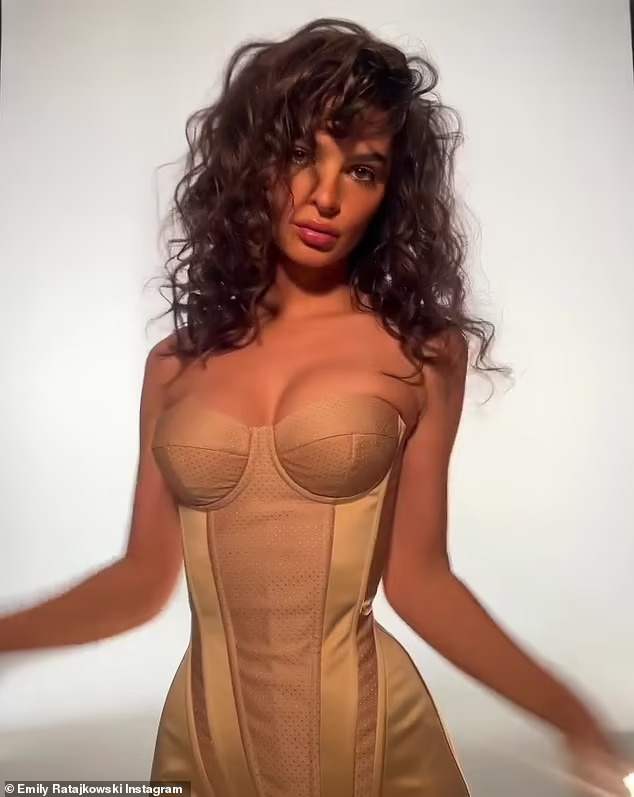As a model and actress, Emily Ratajkowski is no stranger to provocative photoshoots and social media posts that generate buzz. Her recent Instagram post, in which she posed in a corset and dropped what some have referred to as “boob thirst traps,” is no exception.
In the photo, Ratajkowski wears a black corset that accentuates her curves and pushes up her breasts, which are on full display. Her makeup is sultry and her hair is styled in loose waves, adding to the overall sex appeal of the image. The caption simply reads, “Mood.”
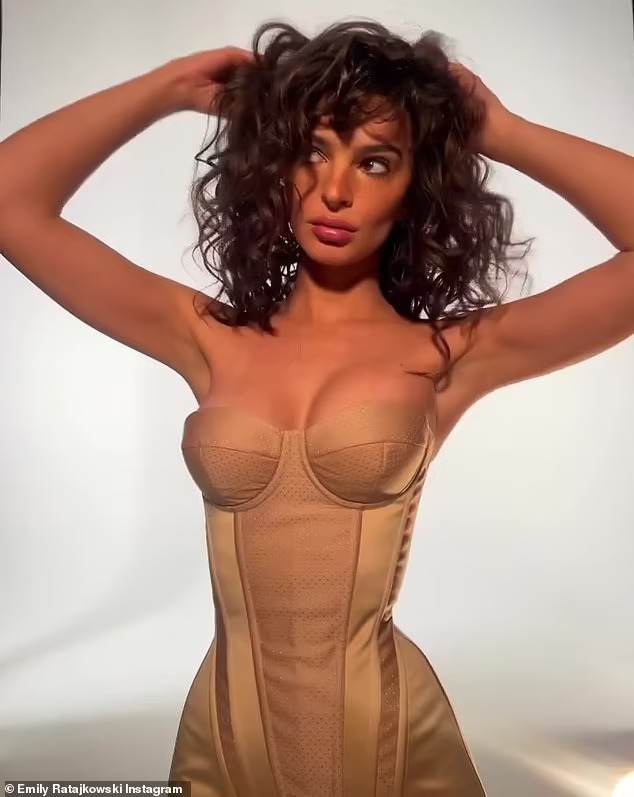
While some have criticized Ratajkowski for perpetuating the objectification of women, others have defended her right to express herself and embrace her sexuality. At the heart of this debate lies the question of whether Ratajkowski’s posts are empowering or harmful to women.
On the one hand, Ratajkowski has been a vocal advocate for body positivity and women’s rights. In her 2018 essay for Glamour magazine, she wrote about the pressure women face to conform to unrealistic beauty standards and the ways in which the media perpetuates harmful stereotypes about women’s bodies. She also shared her own experiences of being objectified and sexualized from a young age, and how she has come to embrace her sexuality on her own terms.
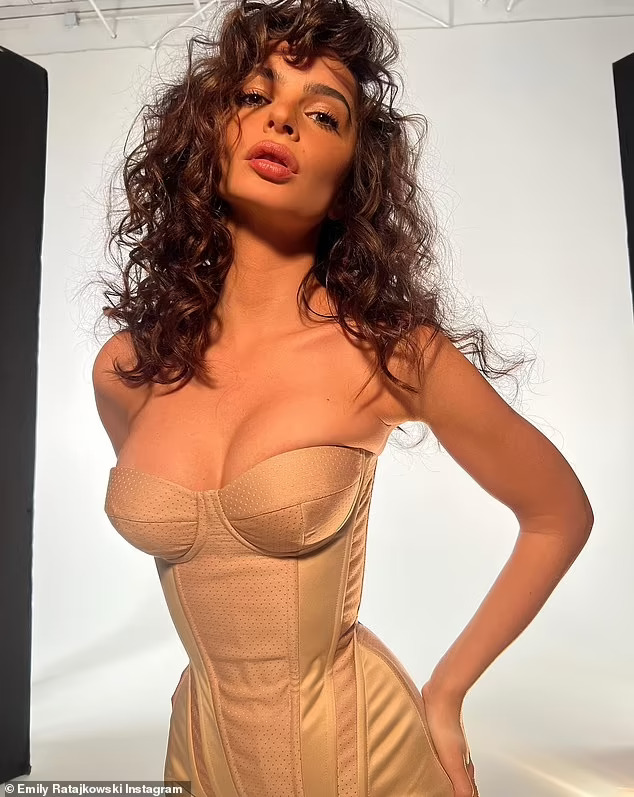
In this context, Ratajkowski’s corset photo can be seen as a celebration of her body and a rejection of societal norms that dictate how women should look and behave. By embracing her curves and sharing photos that challenge traditional notions of beauty and femininity, Ratajkowski is sending a powerful message to women everywhere that they too can be confident and comfortable in their own skin.
However, some argue that Ratajkowski’s posts are not empowering at all, but rather contribute to a culture of objectification and exploitation. They point to the fact that Ratajkowski’s photos are often taken by male photographers and viewed predominantly by male audiences, which reinforces the idea that women’s bodies exist solely for male pleasure.
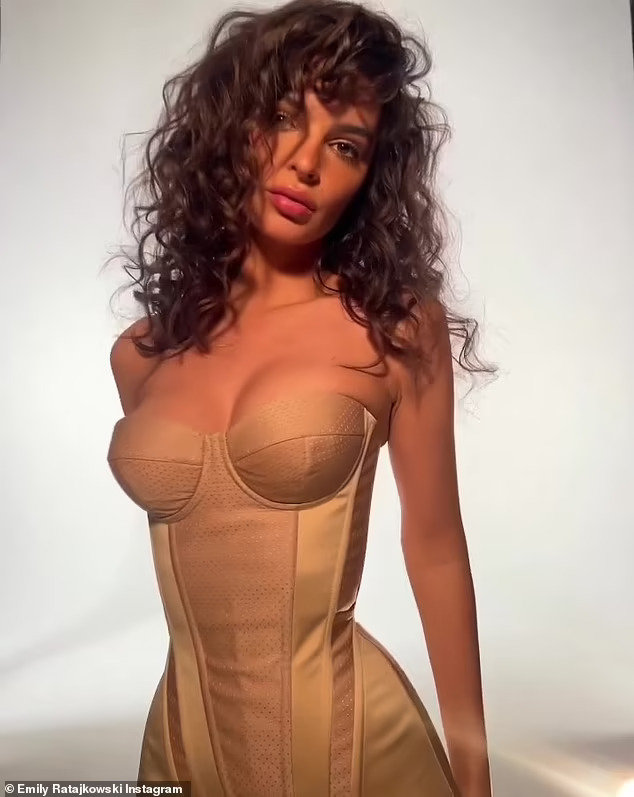
Moreover, they argue that Ratajkowski’s brand of feminism is superficial and ignores the larger structural issues that perpetuate inequality and discrimination against women. While it’s certainly commendable that Ratajkowski is comfortable with her body and uses her platform to speak out on issues of importance, some argue that her focus on individual empowerment rather than collective action is ultimately ineffective in bringing about real change.
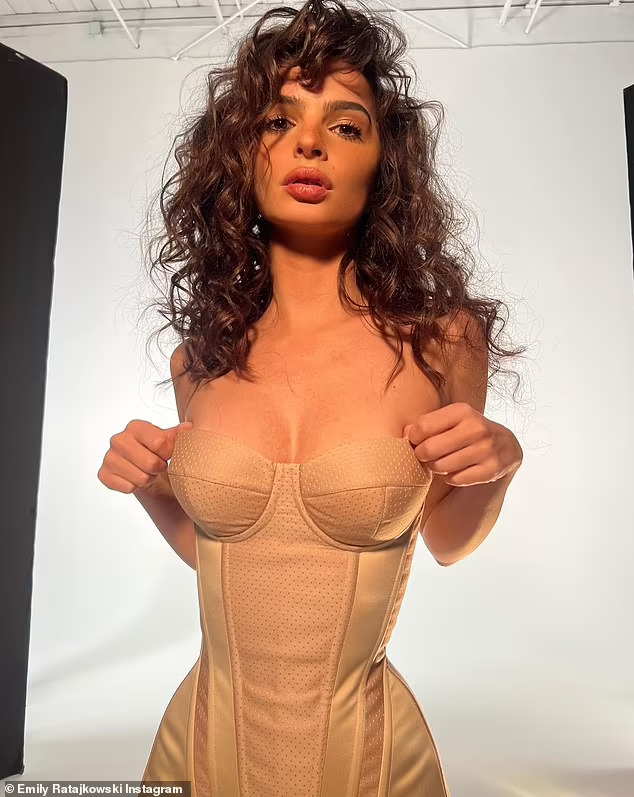
Ultimately, whether Ratajkowski’s posts are empowering or not is a matter of personal interpretation. It’s true that she has been a vocal advocate for body positivity and women’s rights, and her corset photo can be seen as a celebration of her body and a rejection of societal norms that dictate how women should look and behave. However, it’s also true that her photos can be viewed through a lens of objectification and exploitation, particularly given the fact that they are often taken by male photographers and viewed predominantly by male audiences.
As with any issue related to feminism and women’s rights, there is no easy answer or one-size-fits-all solution. What is clear, however, is that the conversation around Ratajkowski’s posts is an important one, as it raises important questions about how we define empowerment, objectification, and sexuality in the context of contemporary culture.
